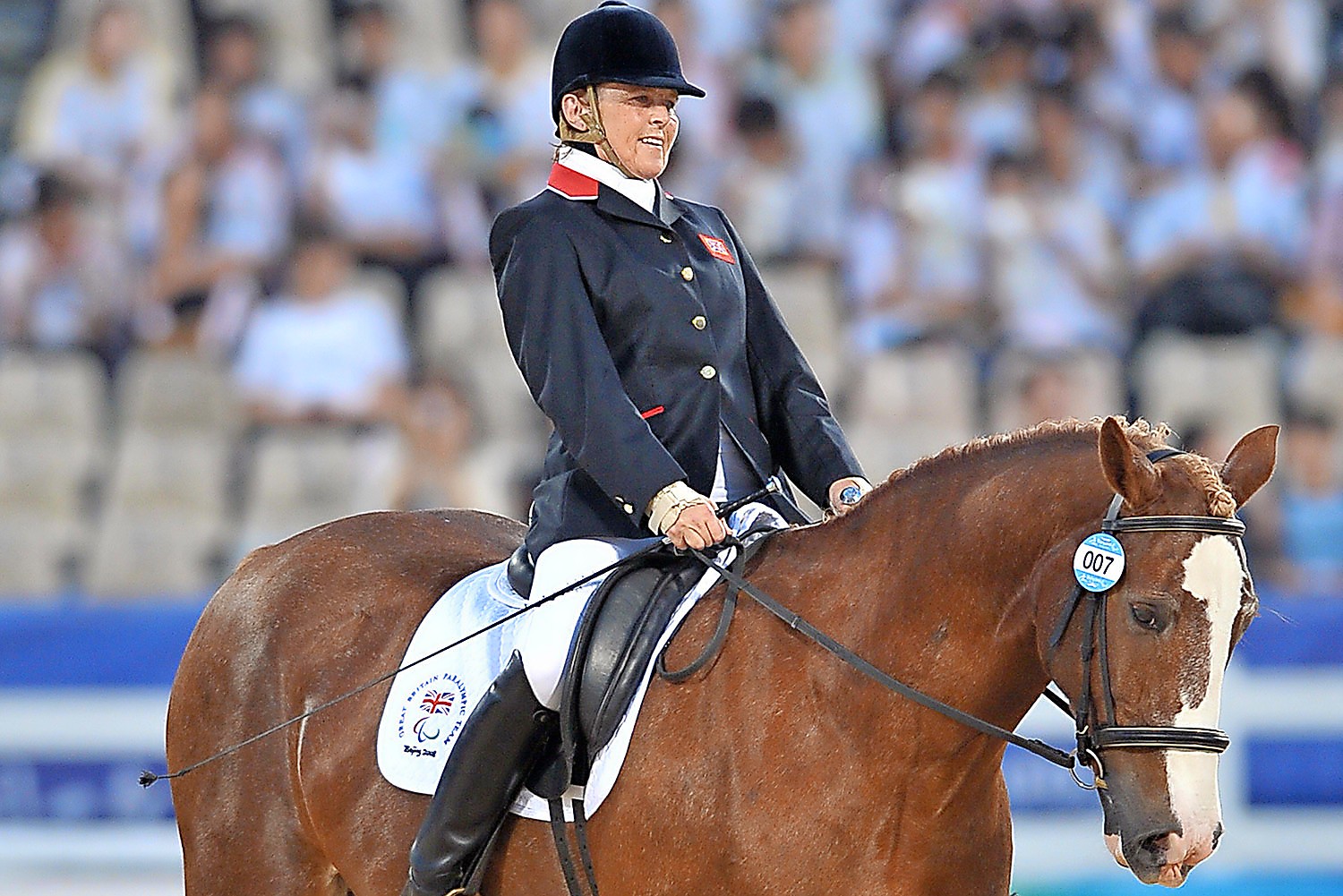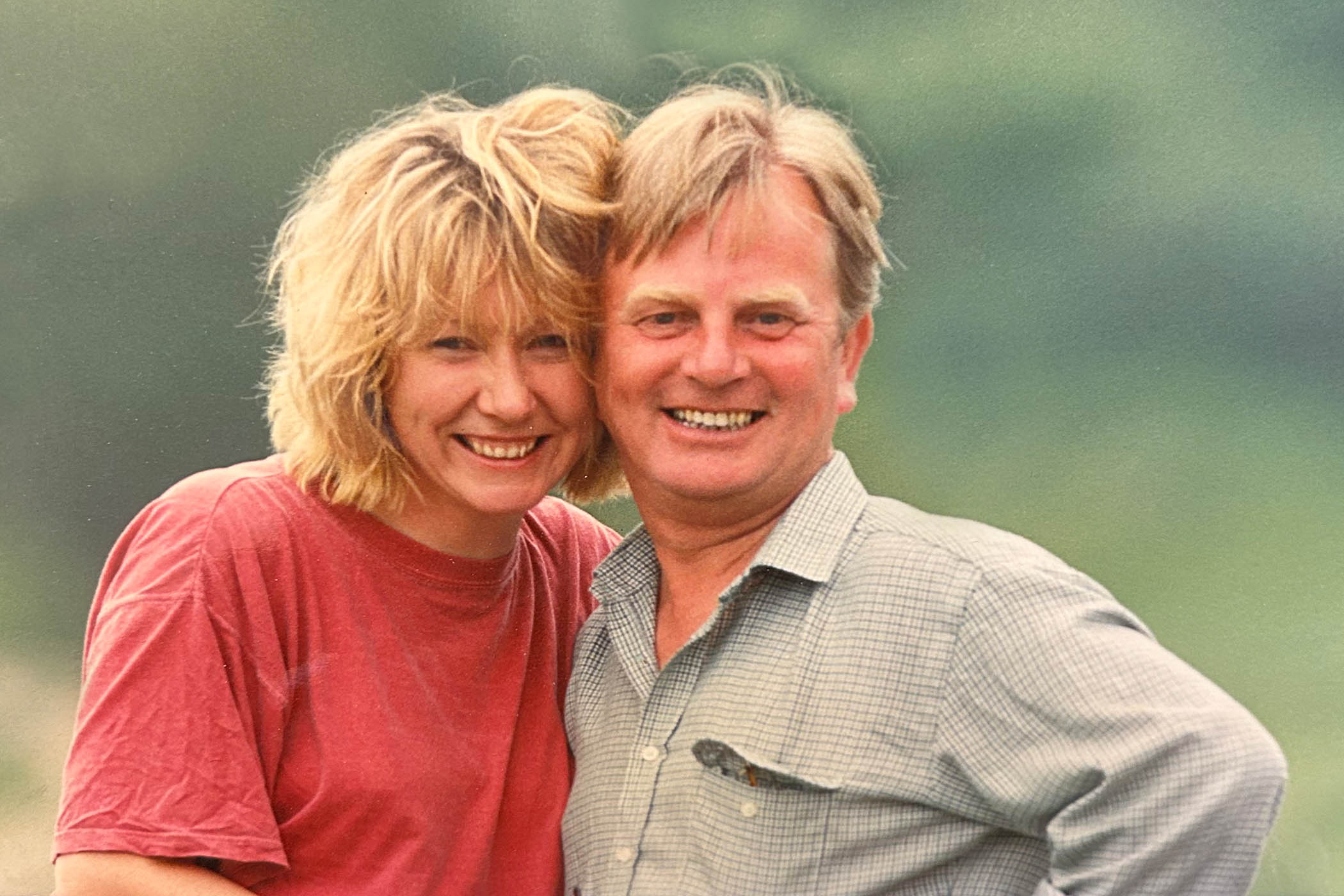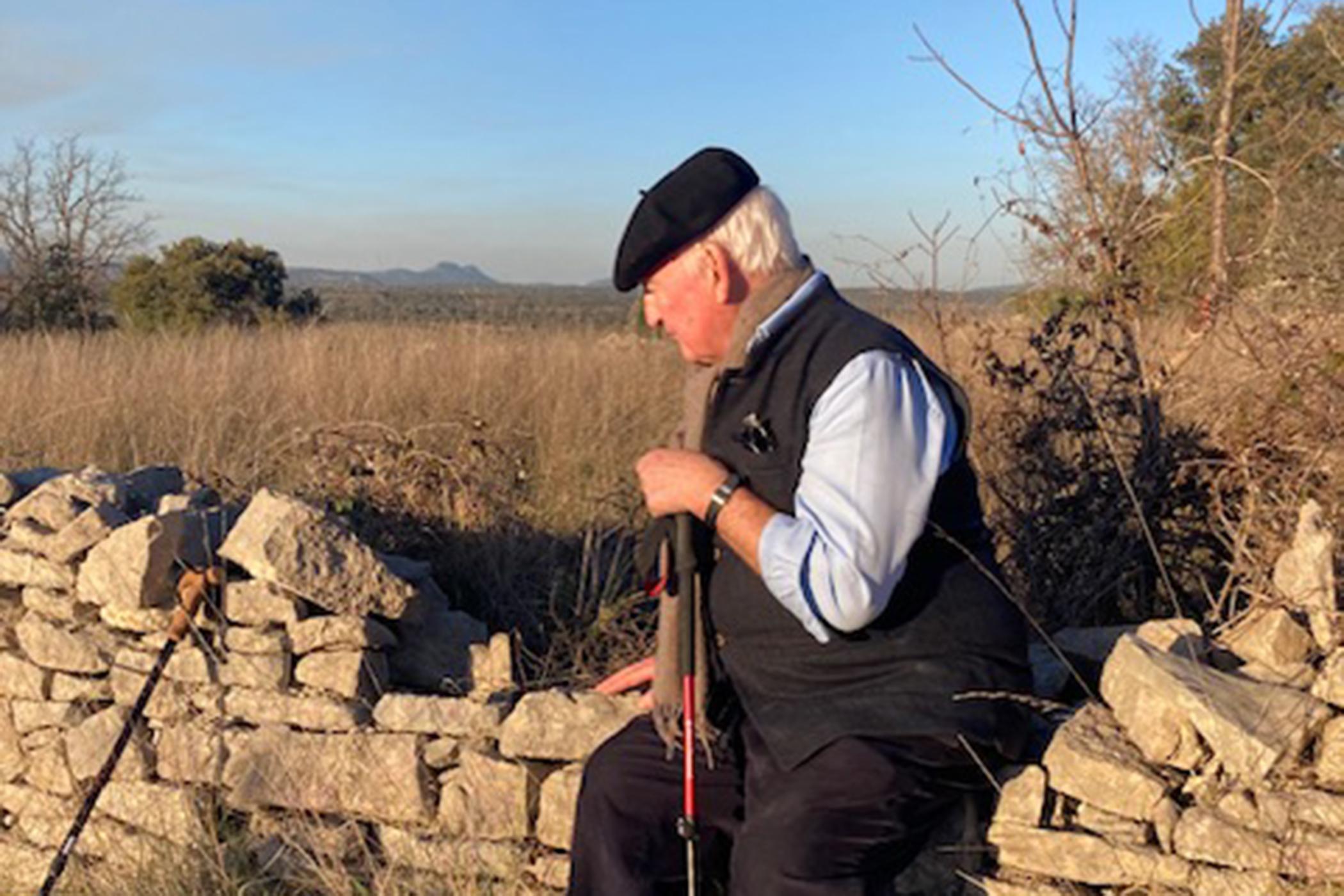Related articles:
When Anne Dunham was told she had not been selected to compete for Great Britain at her home Paralympics in 2012, having won gold medals in equestrianism at the previous four, one of her first thoughts was for the feelings of her horse. “I have told Teddy that he is still a star,” she said.
Dunham, then 63, and Teddy Edwards, a Welsh cob, had dominated para dressage, winning team gold and individual gold and silver at the 2008 Paralympics, team gold and individual silver at the 2010 World Equestrian Games and two golds at the 2011 European Championships.
The last led her to be Sunday Times Disabled Sportswoman of the Year, ahead of perhaps the more famous shortlisted names of Sarah Storey, Ellie Simmonds and Hannah Cockroft. Her score of 79.2% in the Grade 1a freestyle event at the European Championships, the classification for the most severely disabled riders, was the highest individual score and helped the four-member GB team to set a record overall total.
Dunham had been competing on Teddy for five years by then and described their crucial relationship: “We get inside each other’s heads,” she said. “He is ever so naughty sometimes. But whenever we go to competitions, he thinks, ‘I will be a good boy this time’ and just does his job. He has grown from strength to strength.”
Within months, her hopes of competing at London 2012 were dashed. After a cut in the number of entries each nation was allowed, Team GB selected only one in Grade 1a: Sophie Christiansen, who was 39 years younger. Their faith was justified as she won three gold medals. “It’s thanks to Anne I’m as good as I am now,” said Christiansen.
Dunham could have retired then. Instead, she resolved to go to one more Paralympics. Though she was the oldest British competitor, at 67, in Rio in 2016, she won another team gold medal and two silvers riding Lucas Normark. By then, Teddy Edwards was suffering from Cushing’s disease, a hormonal disorder; he died in 2018. “It was a heart-wrenching goodbye,” Dunham said. “He was a horse no one expected anything from, but he gave everything.”
Born in Tynemouth in 1948, Dunham started riding aged eight and joined the Horse Rangers Association, which she described as “Girl Guides with horses”. She worked at a stable and by 16 was looking after 80 horses at weekends. She had ambitions to ride internationally but began to experience mobility problems in her right leg, which was incorrectly diagnosed when she was 27 as multiple sclerosis. In 2011, it was found to be dystonia, a neurological movement disorder.
In 1988, when her husband sold his business, they bought a farm in Wales and Dunham got back on a horse with the help of the Riding for the Disabled Association. Six years later, she won a gold and a silver at the World Championships in Hartpury, Gloucestershire, on a borrowed horse called Oberon.
Related articles:
Dunham was duly selected to go to Atlanta in 1996 for the first Paralympics in which dressage featured. For those Games, and again in 2000, riders did not take their own horses but drew a local ride out of a hat, so the ability to form a relationship quickly was imperative. Dunham's horse, Doodlebug, lived up to his name. “He would explode,” she said. But over just one hour of training on each of five days before the competition, she worked out how to cajole him. In the individual event, they won the bronze medal and helped Britain to claim the team gold.
Further Paralympic team golds followed in Sydney in 2000 and Athens in 2004, while Dunham was fifth three times and sixth once in the individual events, before beginning her relationship with Teddy Edwards for her fourth Games in 2008, held in Hong Kong. They won the championship event, with Christiansen getting silver (the positions were reversed in the freestyle), and Britain won the team gold by 26 points from Germany, with Dunham their highest scorer.
Newsletters
Choose the newsletters you want to receive
View more
For information about how The Observer protects your data, read our Privacy Policy
Dunham was the first to praise her support team, not least her sister Gillian, who travelled to championships as her carer, and daughter, Amber, who had been her groom since 2000. “I wouldn’t have had the success I ha achieved ve if we hadn’t been on this journey together,” she said when she retired in 2017.
Penny Briscoe, the Paralympics GB chef de mission, said that what stood out was Dunham’s “commitment to being her absolute best and encouraging the best from those around her. Anne really was a team player”. David Hamer, British Equestrian’s head of performance, praised her kindness to others but called her “a fearless warrior whose desire to win was truly inspiring”.
In 2003, Dunham had what she regarded as her finest ride at the World Championships in Denmark, where she drew a mare called Rhona who was not used to a competition atmosphere and initially proved uptight. During practice, Dunham helped her to settle and, by the contest, when they performed to Hey Jude and When I’m Sixty-Four, their relationship clicked perfectly.
"From the moment I trotted Rhona down the centre line, I knew it was going to go well,” Dunham said. “She floated across the arena and I felt as though I was riding a well-oiled machine. I smiled throughout and so, I’m sure, did Rhona.”
Anne Dunham, para-dressage rider, was born on 24 September 1948 and died on 11 May 2025, aged 76
Photographs by Mike Clarke/AFP



